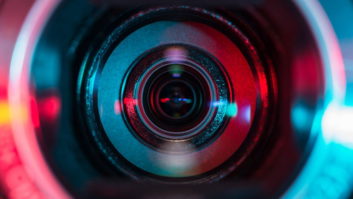Hands up anyone who doesn’t want the activity of production to be creative. OK, that’s a no-show. So now we all agree we believe creativity is A Good Thing, what’s its defining characteristic?
It’s messy. Very messy. Whoever heard of a creative person who wanted their programme to be like everyone else’s? Good creatives will, by definition, seize upon new techniques and technologies that give them an edge – that make their programmes distinctive.
For this simple reason it is an enormous mistake for any organisation or product to seek to standardise or constrain the production process. ‘Well they’ll just have to do what we tell them!’ is about the most futile exhortation any operations manager can make.
But this fundamental characteristic of production – that it needs to be allowed to be messy if it is to deliver the creativity we all crave – carries with it an odd twist. Creatives are also by nature very conservative. Successful delivery of their labour of love is paramount, and to that end they will return again and again to the people, processes and rituals that have worked for them in the past.
It is hard to overstate the importance of the word trust in the production community. Combine this with the urge to do something new, and you can find yourself standing in an on-line suite trying to pick up the mess generated by the wrong people trying to wrangle a new technique.
In many ways that is simply the price (and it can often be expensive!) we have to pay. Creatives need the freedom to create; they need a range of products, craft talent, and production facilities to enable them; and they are bound to make mistakes.
But here comes the real paradox. Everything about what it takes to make great content seems to require diversity in the means of production; but it’s a diversity the industry can no longer afford. Major trade shows such as IBC and NAB can trick us into thinking broadcast technology is a major global industry. And true enough global media – in all senses of the word – is big business. But the broadcast technology part of it really isn’t – not compared to the consumer end of the media industry.
And furthermore, though they may not realise it, those media consumers really don’t want the broadcast technology industry to be big. Audiences have strong views about programmes, about channels and creative brands. They could not care less about the technology infrastructure and workflows that got those products to their living room, lap or palm.
That’s why the whole process of content delivery needs to absorb as little cost as possible while causing the least trouble. Content commissioners and distributors would be inclined to agree with consumers: they’d rather spend their money on content acquisition and ownership than content delivery.
Inhibition and efficiency
This is the lovably crazy and paradoxical world of television – at once brilliantly messy, superstitious and constrained – as we make the fundamental shift in the means of production, from physical to file-based media. So however can we become a truly effective end-to-end digital industry that ensures creativity remains uninhibited, supplier choice remains rich, and yet background processes are more efficient and elegant?
That, in a nutshell, is the challenge the UK’s Digital Production Partnership (DPP) is seeking to address. And what has been intriguing since the partnership came into existence just over four years ago is the enthusiasm with which colleagues from across the industry are joining with us to meet that challenge.
The DPP is led and paid for by three UK public service broadcasters – ITV, Channel 4 and the BBC. But the work it undertakes is supported by all the UK broadcasters, as well as an impressive role call of the industry’s manufacturers, service providers, post production houses, production companies and consultancies.
The DPP offers opportunities for colleagues from all these different sectors to come together to share perspectives, problems and best practice. Incredibly perhaps that opportunity did not exist before; and it is telling how much people value it.
Perhaps the Partnership’s most significant achievement has been to define a common standard for file-based programme delivery in the UK – and to bring that standard into practice by 1 October 2014. Right now the whole TV industry in the UK is working together to meet the file-delivery deadline in what we believe is the first pan-industry process change to happen in a single, coordinated, big-bang moment. The transition to HD has taken a decade; the move to file delivery is happening in the space of a few months.
More interesting still, the creation of a single file-delivery standard has created a domino effect of coordinated, collaborative change. The DPP has found itself working with industry colleagues to look at product compliance and interoperability; digital storage and connectivity; workflow best practice; and opportunities for further common standards – notably in that part of the television chain which benefits from simplicity, namely delivery, distribution and storage, rather than the part that thrives on diversity, namely production.
These new conversations are crossing the boundaries of public service and commercial. What has been exciting, and surprising, is that the DPP has discovered that the unspoken truth of TV – that the start of the production chain benefits from freedom, but the end of it benefits from constraint – is something everyone wants to shout out loud.
Let’s not pretend making TV suddenly got easy. Nor should we pretend the DPP has all the answers. But the Partnership does seem to have started a conversation that pretty much everyone wants to take part in. And when we speak with one voice, the mess suddenly seems manageable.






